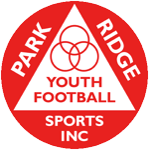Important Tackle Football Facts for You to Know
Introduction to Important Tackle Football Facts:
Youth Football has become a popular sport amongst parents nationwide. The parents’ inclination towards Youth Football is due to the National Football League (NFL) and collegiate Football. However, Youth Football is not necessarily appropriate for every child. Every kid is distinct from other kids in terms of physical strength and mental faculty. As a parent, you need to recognize the abilities of your kid as to whether youth football would be suitable for sports or not. According to one parent’s experience, youth football has pros and cons. Further, he has emphasized that the parents should know 4 things to engage their children in youth football. As a matter of fact, parents influence their children’s involvement in sports in different manners such as providers, role models, and interpreters. Here are some important tackle football facts:
1. Youth Football is not for every child or Parent:
Naturally, football is contact and challenging sport requiring a lot of skills and efforts. For kids, football needs tough training including several drills. A child has to perform a skill at least 60 to 70 times before actually, begins to learn it. These intense workouts help the youth in getting their body physically stronger. Hitting or getting hit in the football game is expected anytime. The question arises as to whether your child is ready for such a situation. Many kids are afraid of the unpleasant things of hitting others or being hit. If you feel that your child is fearful of such a thing, it would be better for you to consider this before signing up for youth football in respect of your child.
2. There will be injuries:
Despite the use of the best protective equipment, injuries in youth football are inevitable. It is evident that about 10 percent of the players get injured during the game. However, most of the injuries are minor. At times, players get hurt severely. This has raised concerns over serious injuries, especially the risk of concussions. Concussions are brain injuries caused due to blows on the head. But measures are being taken to minimize such tackles. In order to protect your child from concussions, you need to ensure that the youth football program you sign your child up for, has these elements; proper equipment, proper tackling and blocking, and a proper concussion program.
Moreover, protective equipment, such as a helmet, a cup, and a mouthpiece must be used properly.
3. It’s a huge commitment for both you and your child:
Youth football sports need a huge commitment from you and your child as they require considerable time for intense workouts and matches. In fact, athletes have to maintain a certain academic performance level in addition to their football programs. For parents, it needs extra time to cope with the situation. Further, you will have to take into account the situation if you have two kids playing in different teams. This will require more time to spend on games. Youth football organizations are typically volunteering non-profit organizations. Their organization is run by means of the efforts of volunteers. You have to fulfill your commitments as a volunteer too. In addition to this obligation, you will have to anticipate regular fundraising over the year.
4. It is meant to be fun:
Admittedly, youth football is a recreational activity. But coaches and parents insist kids deal with it as a super Bowl championship. Due to this, kids start pushing hard and football gets an unpleasant thing. Moreover, many parents engage their kids with the hope of the future leading to the NFL. It is not a bad thing to visualize your kid as a part of the NFL. But do not wrap up in the future.
The Conclusion to the Important Football Facts:
If you are familiar with the pros and cons of youth football, and the risks thereof, you are in a better position to decide as to whether it is appropriate for a child or not. And if you feel that this sport does not suit your child, it would be better not to sign your child up.
